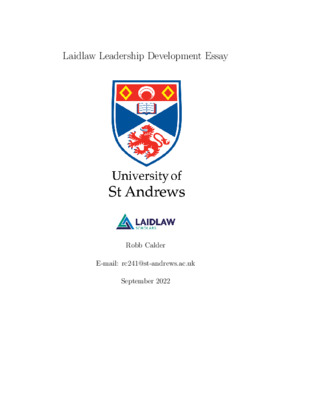About Robb Calder
I am a 2nd Year PhD student at the Institute of Astronomy at the University of Cambridge. I work in Professor Oliver Shorttle's group, studying the atmospheres of hot rocky planets. In our solar system, Venus exemplifies the fate of a planet that orbits too close to its host star: a catastrophic runaway greenhouse effect leading to the loss of all liquid water and hellish surface conditions. Understanding the factors that led to this outcome on Venus helps us identify the conditions necessary for such processes to occur on exoplanets, refining our understanding of the inner edge of the habitable zone.
My recent work has focused on ozone production in Venus' upper atmosphere and the potential for ozone to present a false-positive biosignature on Venus-like exoplanets. Currently, I am extending my research on hot rocky exoplanets to include the sub-Neptune regime, particularly focusing on 'Magma Worlds.' There has been recent interest in Hycean worlds—planets with vast liquid oceans and hydrogen-dominated atmospheres—and their potential to support life. However, distinguishing observationally between Hycean worlds and sub-Neptunes with molten surfaces, or 'Magma Worlds,' remains a critical challenge.




